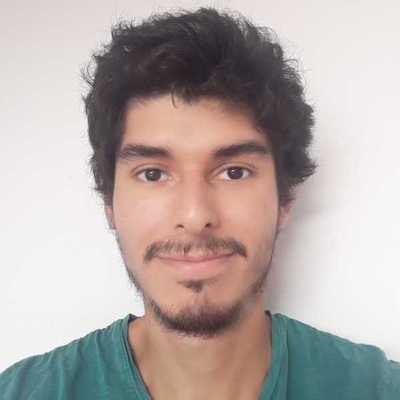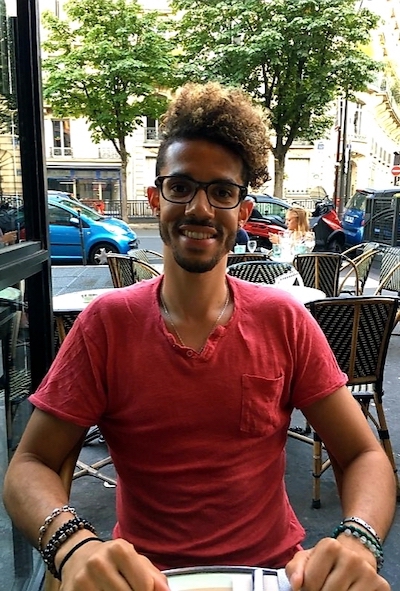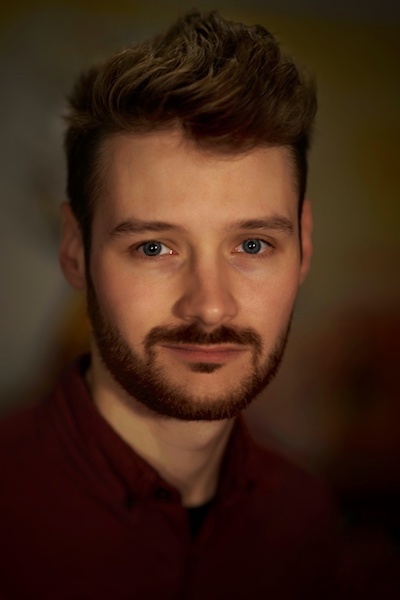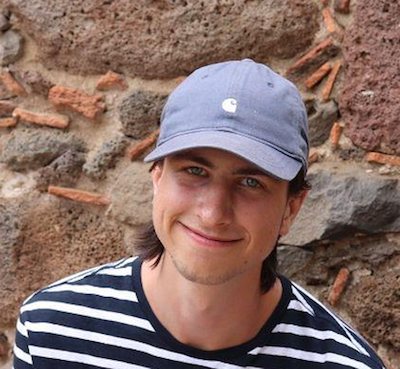The Genesis of Planets
Group Members
Matías Gárate (he/his), Post-doc, 2020-2023
From: Chile
The funding of this group at MPIA was provided by the Alexander von Humboldt Foundation in the framework of the Sofja Kovalevskaja
Award endowed by the Federal Ministry of Education and Research. During his post-doc, Matías investigated the interplay of different evolution processes in protoplanetary disks, such as internal/external photoevaporation, dead zones and dust traps. Results at:
During his post-doc, Matías investigated the interplay of different evolution processes in protoplanetary disks, such as internal/external photoevaporation, dead zones and dust traps. Results at:
Gárate et al. (2021)
Gárate et al. (2023)
Gárate et al. (2024)
Matías is now working as an artist, he creates very beutiful digital 3D art.
Timmy Delage (he/his), PhD, 2019-2024
From: France During his PhD, Timmy developed a numerical code that couples the long-term evolution of gas and dust in protoplanetary disks with nonideal magnetohydrodynamic calculations to understand how, when and where some of the building blocks of planets are formed. Results at:
During his PhD, Timmy developed a numerical code that couples the long-term evolution of gas and dust in protoplanetary disks with nonideal magnetohydrodynamic calculations to understand how, when and where some of the building blocks of planets are formed. Results at:
Delage et al. (2022)
Delage et al. (2023)
Delage et al. (in prep)
Timmy is now a Chalmers Initiative on Cosmic Origins (CICO) Postdoctoral Fellow in Sweden.
Nicolás Kurtovic (he/his), PhD, 2019-2024
From: Chile During his PhD, Nico worked on ALMA observations of protoplanetary disks under different conditions: around very low mass stars, binary systems, and different evolutionary phases. Results at:
During his PhD, Nico worked on ALMA observations of protoplanetary disks under different conditions: around very low mass stars, binary systems, and different evolutionary phases. Results at:
Kurtovic et al. (2021)
Kurtovic et al. (2022)
Kurtovic et al. (2024)
Kurtovic et al. (submitted), about RWAur disk
Kurtovic et al. (in prep), AGE-PRO dust evolution paper
Nico is now a post-doctoral researcher at MPE in Germany.
Jochen Stadler (he/his), Master Student, 2020-2022
From: Germany During his Master, Joe worked on undesrtanding the effect of the lifetime of substructures on disk properties, such as disk luminosity, size, and spectral index . Results at:
During his Master, Joe worked on undesrtanding the effect of the lifetime of substructures on disk properties, such as disk luminosity, size, and spectral index . Results at:
Stadler et al. (2022)
Joe is now doing his PhD at Observatoire de la Côte d'Azur in France.
Max Ackermann Pyerin, Bachelor Student, 2020
From: Germany During his bachelor project, Max worked on modeling the planet-disk interation process in the disk around HD 100546 by using FARGO3D simulations and radiatitive transfer models to compare to ALMA observations. Results at:
During his bachelor project, Max worked on modeling the planet-disk interation process in the disk around HD 100546 by using FARGO3D simulations and radiatitive transfer models to compare to ALMA observations. Results at:
Pyerin et al. (2021)
After Max finished his bachelor in Physics, he decided to move to art and architecture; and he started a new bachelor degree at Kaiserslautern University
Other members
Dr. Christian Lenz (post-doctoral researcher), Nov. 2020-Dec. 2020.
Leon Marx (bachelor student, University of Heidelberg), Apr. 2021-Aug. 2021
Our Funding
